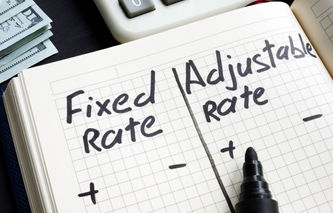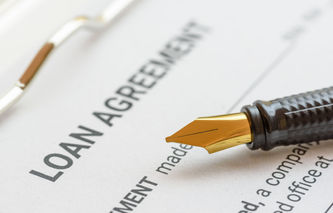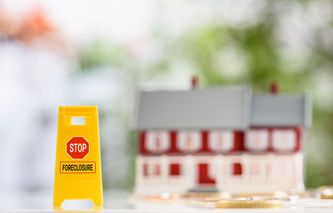There is no doubt that filing for bankruptcy can have a devastating impact on the ability to borrow money. This is especially true in the months and, sometimes years, immediately following a bankruptcy filing and settlement. But buying a home after bankruptcy in as few as 18 to 24 months is possible if the right steps are taken to rebuild creditworthiness. Anyone that's presently in a bankruptcy proceeding is going to have to wait until their case has been decided before trying to buy a home. No one's going to extend credit to someone when they're in this situation. Besides, this is a good time to get basic financial matters in order before thinking about borrowing money, especially when it comes to a large investment such as buying a home.
Credit Ratings after Bankruptcy
After a bankruptcy settlement, or discharge, whether it's Chapter 7 or Chapter 13, there is no doubt that a filer's credit rating will be poor or perhaps even at a low point. In fact, one could reasonably argue that in the months prior to the bankruptcy filing, the credit score was already declining and borrowing was getting more difficult. But if we step back and turn the negative of the bankruptcy into a positive, two things have hopefully been accomplished:
It's been a learning experience, and with any luck, all personal and household finances are now in order.
The bankruptcy has settled many unknowns. The filer now has a good understanding of the money owed to creditors, and which debts have been discharged.
So what's the good news? If bankruptcy was a low point, there is only one place to go; and that is up. So the next logical question is how to go about rebuilding a credit score so that buying a home after bankruptcy becomes a reality?
Rebuilding Credit Scores
Buying a home is a pretty big investment from a lender's standpoint too. If a borrower wants to be trusted with a home loan, they need to prove to lenders their financial troubles are in the past. In the paragraphs below, we're going to discuss the steps everyone can take to help start rebuilding their credit scores as quickly and efficiently as possible. This will minimize the time it takes until it's possible to qualify for a mortgage.
Cleaning Up a Credit Report
After bankruptcy, filers will know exactly where they stand with respect to creditors; who still have to be repaid, and what obligations no longer exist. While it may take the credit reporting agencies some time to catch up, it's important to make sure credit reports accurately reflect the outcome of the bankruptcy proceeding.
Rebuilding Credit after Bankruptcy:
- Ensure your credit report reflects the outcome of the bankruptcy proceeding
- Apply for a secured credit card
- Obtain a personal car, or student loan, and repay the amount owed on time
For example, if an account still shows as open and overdue when it shouldn't be, then contact the credit bureau and prove to them those accounts should be "included in bankruptcy." Also check for other mistakes on the credit report, and have those corrected as well. Everyone's entitled to a free credit report from each of the rating agencies each year. The Fair Credit Reporting Act provides a clear process for having the errors on a report corrected. Once the report is clear of errors, it's time to start rebuilding the score.
Secured Credit Cards and Installment Loans
The fastest way to start rebuilding a credit score after a bankruptcy is to prove to creditors and other lenders that money owed will be paid back in a timely manner. There are two ways to do this: secured credit cards and installment loans.
Secured Credit Cards: Anyone that's recently come out of a bankruptcy proceeding will find it hard to get an unsecured credit card. A secured card provides credit that's limited to an amount on deposit with the issuing bank. So if $200 to $500 is placed in an account with the issuing bank, they will limit credit each month to the amount of that deposit.
Installment Loans: This can include personal, car, and student loans. An installment loan is simply one where the borrower makes "installment" payments each month.
Both of these approaches require the borrower to think small at first. Remember, before a lender is going to trust someone with the kind of loan needed to buy a home, they're going to have to prove they can be trusted to pay back smaller amounts; especially after a bankruptcy. Adopt a responsible approach to credit such as using only a small portion of the available limit, and do not apply for too much credit at once. This leads us to the next logical question: What's a reasonable amount of time after filing bankruptcy before thinking about buying a home?
Home Loans after Bankruptcy
A credit reporting agency is within their legal rights to show the bankruptcy on a credit report for up to ten years. But that doesn't mean it's necessary to wait ten years before buying a new home. In fact, by adopting the steps previously outlined, it's possible to immediately start rebuilding one's creditworthiness. Studies have found that in only 18 to24 months after the close of a proceeding, debtors can qualify for a loan on the same terms as if they had not filed for bankruptcy. In fact, the Federal Housing Administration's policy for qualifying for a home loan is even more flexible than some conventional mortgage lenders. The FHA allows someone to re-establish credit if:
Twenty four months have passed since the bankruptcy has been discharged.
Any outstanding tax liens have been paid or the appropriate arrangements have been made via a repayment plan on file with the IRS or Department of Revenue.
Three years have passed since a foreclosure or a deed-in-lieu has been resolved.
All judgments have been paid.
Bankruptcy and Interest Rates
Finally, keep things in perspective when applying for a home loan after a bankruptcy. While it may be possible to qualify for a loan, the interest rate might be relatively high when compared to lower interest rates being offered to the rest of the marketplace. Don't be discouraged by offers of high interest rates. Make large down payments to keep the loan small, and make sure the loan does not impose a prepayment penalty. This allows borrowers to refinance their car or home loan at more attractive rates as their creditworthiness improves.




